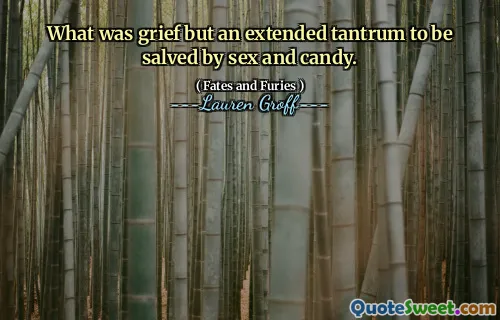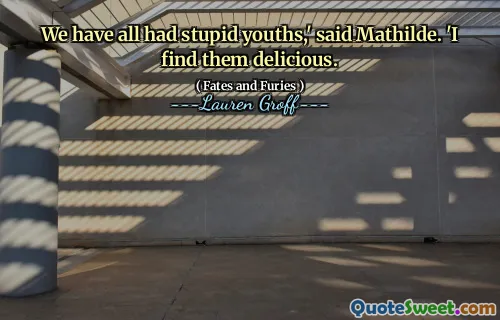
We have all had stupid youths,' said Mathilde. 'I find them delicious.
Reflecting on youth and the follies associated with it reveals a universal truth about human nature. The quote from Mathilde captures a tender acknowledgment that everyone experiences periods of foolishness and impulsiveness during their formative years. These youthful mistakes, often viewed as embarrassing or regretful in later life, can also be appreciated for their authenticity and the innocence they represent. Recognizing the universality of such experiences helps foster self-compassion and empathy toward others. Rather than dismissing past mistakes as mere errors, one might view them as rites of passage—moments that shape character and deepen understanding of oneself.
In the context of the narrative, this sentiment can be seen as an expression of maturity and humor—a way of accepting one's imperfections, even finding joy and humor in them. Mathilde's statement suggests that she doesn't regret her past, but rather celebrates it, emphasizing the idea that shortcomings and silly behaviors are an integral part of the human journey. This perspective encourages us to embrace our past, including its more embarrassing moments, with kindness and humor. By doing so, we can better accept our flaws and recognize that imperfections are what make us uniquely human. Moreover, such reflections help cultivate humility and a sense of shared humanity, reminding us that everyone, no matter their background or circumstances, has had moments of foolishness.
In literature and life, these memories serve as reminders that growth often involves making mistakes, learning, and eventually laughing at oneself. They are milestones of personal evolution and sources of cherished stories. Mathilde’s lighthearted comment invites us all to accept our youthful foibles as delicious—an inevitable, valuable part of our human experience, worthy of smile and reflection.








